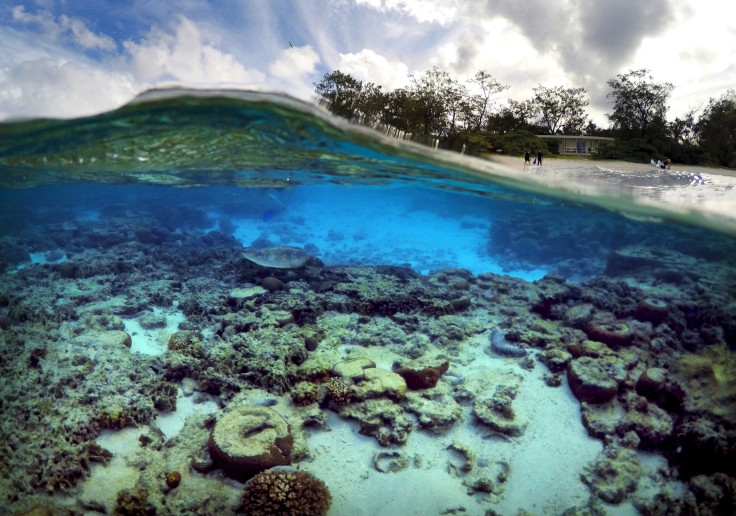Chemical Found In Sunscreen Is Killing Coral Reefs: Study

While sunscreen is proved to have positive effects on humans, it actually has massively damaging effects on coral reefs, researchers discovered in a recent study. The study, released Tuesday, found that even a tiny amount of sunscreen -- equivalent to a drop of water in a half dozen Olympic-size swimming pools -- is all it takes to harm delicate coral reefs, the Washington Post reported.
Scientists at the University of Central Florida conducted the study in the U.S. Virgin Islands and Hawaii, discovering that a common UV-filtering compound found in sunscreen is killing coral, especially in areas frequented by recreational divers and snorkelers, United Press International reported. The researchers found that the chemical, oxybenzone, can break down the DNA of coral reefs in three different ways, taking away its components and turning it white. The compound damages the DNA of adult coral and deforms the DNA of coral larvae, trapping the larvae into their own skeletons. Oxybenzone also induced coral bleaching, which is one of the most common causes of death for coral reefs.
Up to 14,000 tons of sunscreen lotions are discharged into coral reefs, and a lot of it “contains between 1 and 10 percent oxybenzone,” the authors said, and at least 10 percent of coral reefs are estimated to be at risk of high exposure because of their proximity to popular tourism areas.

“The most direct evidence we have is from beaches with a large amount of people in the water,” said John Fauth, an associate professor of biology at the University of Central Florida in Orlando, the Washington Post reported. “But another way is through the wastewater streams. People come inside and step into the shower. People forget it goes somewhere.”
Only a few weeks ago, the National Oceanic and Atmospheric Administration announced that the world is in the middle of a third global bleaching event and that pollution is damaging the health of coral. While over 3,500 sunscreen products worldwide contain oxybenzone, there are alternative options that do not include the compound, including a product called Badger Natural Sunscreen and many others that can be found here.
“We have lost at least 80 percent of the coral reefs in the Caribbean," said Craig Downs, a researcher and director of the non-profit scientific organization Haereticus Environmental Laboratory, UPI reported. "Any small effort to reduce oxybenzone pollution could mean that a coral reef survives a long, hot summer or that a degraded area recovers," he added. "Everyone wants to build coral nurseries for reef restoration, but this will achieve little if the factors that originally killed off the reef remain or intensify in the environment."
© Copyright IBTimes 2024. All rights reserved.





















